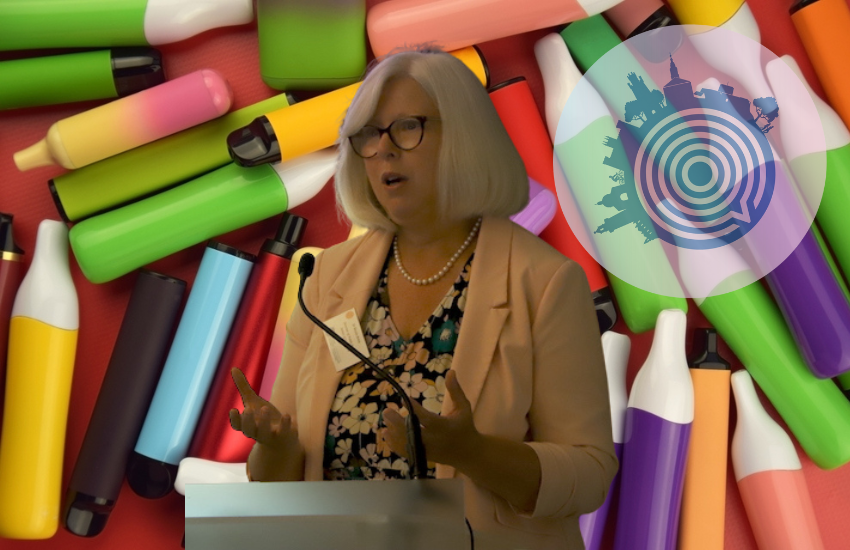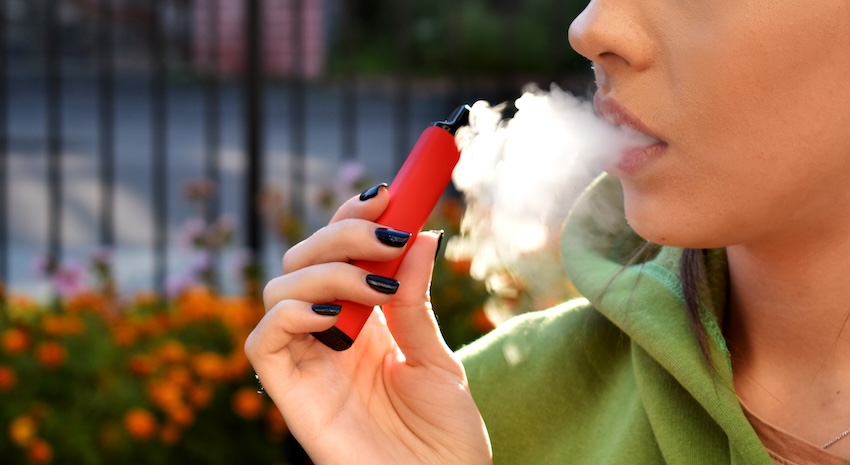


Government needs to work with outside partners to optimise what is done for islanders, the director of public health has argued.
Dr Nicola Brink was speaking at the Health Improvement Commission’s conference.
Public Health and HIC work together on several initiatives, including the healthy weight strategy, while moving to tackle vaping in young people is a prime example of the agility in their relationship.
Government cannot fix it all, said Dr Brink.
"We need to have that blend of government and non-government activity," she said.
"And that is fundamental, if we want to provide and optimise what we do for islanders. And I think there needs to be an absolute acknowledgement from government, that government messaging is not always well received.
"So if we say eat less, exercise more, drink less, don't smoke, sometimes that messaging is better sourced from non-government."
Shared goals and shared resources was another benefit of partnership working, she said.
"Let's share the resources, let the resources follow the best person to deliver whatever we're looking for."
It was about providing the right services at the right place and time.
"The other thing from a government perspective that I think we need to be absolutely clear about is that our non-government partners can be more agile, they can respond more quickly to change. So I think we need to embrace all of those concepts and the benefit of partnership working so we can look at how we can deliver a healthier Bailiwick."
Trust and mutual respect was needed for effective partnership working, she added.
Local priorities might differ from other jurisdictions, so it was important to have local evidence to drive decision making.
Open and regular communication was also important for an effective partnership.
Moving to tacking vaping among youngsters is an important example of how partnership working can drive change.
The current Combined Substance Use Strategy runs to 2026, the last joint strategic needs assessment was done in 2019.
"But over the last few years, we've seen a change, we've seen the emergence of vaping, a significant problem in young people living in the Bailiwick."
This was evidenced in the annual Young People's Survey compiled by ESC.

In 2016, 1% of Year 10 girls were vaping, that went up to 20% in 2022.
The average across the sexes and ages went up from 2% to 10%.
The initial strategy did not include vaping, but based on this evidence they responded and now the States has agreed to banning under 18s buying vapes and restrictions on marketing and advertising.
Another sign of joint working was Environmental Health agreeing they could monitor a retail licencing scheme within their resources.
A ban on disposable vapes, with support from Environment and Infrastructure, was also agreed.
But now there is a group of young people addicted to nicotine.
Work is now under way on developing stop vaping services.
The substance use education programme has also adapted to deliver bespoke vaping lessons.
Dr Brink also spoke about how the healthy weight strategy was delivered, with HIC pivotal in running projects like the Daily Mile and Farm to Fork.
"They have really championed that whole schools approach, together with colleagues at Education, looking at activity and nutrition across the schools."
HIC has run campaigns like eat them to defeat them and been central in the counterweight programme.
And because they are a third sector organisation, they are freer in what they can say to influence policy and strategy.
Comments
Comments on this story express the views of the commentator only, not Bailiwick Publishing. We are unable to guarantee the accuracy of any of those comments.